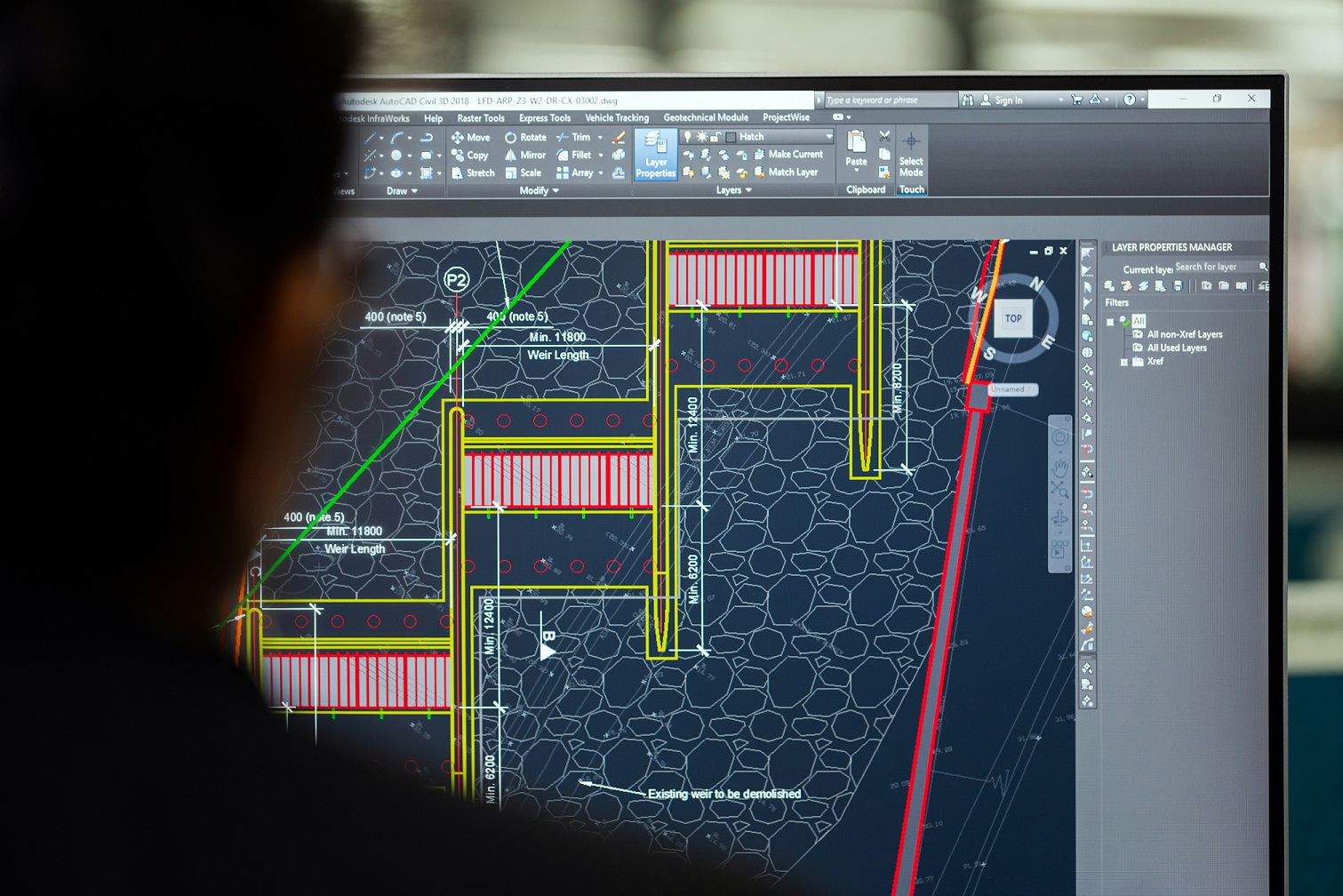Introduction
Engineering is at the heart of innovation, shaping our world in ways we often take for granted. As we look toward 2025 and beyond, the demand for skilled engineers continues to soar. With rapid advancements in technology and a growing focus on sustainability, specific engineering fields stand out as particularly promising. If you’re considering a career shift or looking to enter the workforce fresh out of school, understanding which areas are thriving can help guide your decision-making process. Let’s dive into the best engineering fields to pursue that promise not only job security but also the chance to contribute meaningfully to society’s challenges ahead.
The Growing Demand for Engineers
As technology advances, the need for engineers becomes increasingly critical. Industries are evolving rapidly, requiring innovative solutions to complex challenges.
From artificial intelligence to renewable energy, engineering plays a pivotal role in shaping our future. The demand is not just limited to traditional sectors; emerging fields are creating new opportunities every day.
Countries worldwide recognize the importance of a robust engineering workforce. Governments and organizations invest heavily in STEM education, ensuring that future generations are prepared for these roles.
Moreover, with sustainability at the forefront of global conversations, engineers focused on eco-friendly practices will be essential. Their expertise can drive forward-thinking initiatives that balance development with environmental responsibility.
These trends indicate a promising landscape for aspiring engineers ready to tackle modern problems head-on. A career in this field offers both stability and impact—a combination hard to find elsewhere.
Top Engineering Fields in 2025:
The landscape of engineering is rapidly evolving, and certain fields are set to shine brightly in 2025.
Artificial Intelligence and Machine Learning will dominate the technological frontier. Engineers skilled in these areas will develop smarter systems that learn from data, enhancing everything from healthcare to finance.
Renewable Energy is another field gaining momentum. With climate change at the forefront of global discussions, engineers will be pivotal in designing sustainable solutions like solar panels and wind turbines. The push for cleaner energy sources ensures a robust demand for expertise in this sector.
Civil Engineering for Sustainable Infrastructure focuses on creating resilient cities that can withstand environmental challenges. Professionals who specialize in eco-friendly materials and smart design practices will play a crucial role as urban populations continue to grow.
These dynamic sectors hold immense potential for aspiring engineers looking to make an impact.
– Artificial Intelligence and Machine Learning
Artificial Intelligence (AI) and Machine Learning (ML) are transforming industries at an unprecedented pace. These fields harness vast amounts of data to create systems that can learn and adapt, making decisions faster than any human could.
The applications are endless. From healthcare predicting patient outcomes to finance managing risk, AI is revolutionizing how we approach problems. Companies invest heavily in this technology, leading to a growing demand for skilled professionals.
As algorithms evolve, so do the tools used by engineers in this space. Knowledge of programming languages like Python or R is essential, but understanding statistical models takes you further.
Collaboration with other disciplines enhances AI solutions. Engineers often work alongside data scientists and software developers to build robust systems that deliver real-world impact. Embracing creativity along with technical skills will set candidates apart in this competitive landscape.
– Renewable Energy
Renewable energy is rapidly transforming the engineering landscape. As we face climate change, the shift towards sustainable solutions has never been more critical.
Solar, wind, and hydroelectric power are leading this revolution. Engineers in these areas design innovative systems that harness natural resources effectively. The challenge lies not just in creation but also in integration into existing infrastructures.
This field demands a blend of creativity and technical prowess. Professionals must understand both engineering principles and environmental science to optimize energy efficiency.
Moreover, advancements like smart grids enhance reliability while minimizing waste. This evolution opens doors for engineers passionate about making a difference.
With governments pushing for green initiatives globally, opportunities abound. Companies seek skilled individuals who can navigate this dynamic sector and drive impactful projects forward.
– Civil Engineering for Sustainable Infrastructure
Civil engineering is evolving rapidly, emphasizing sustainable infrastructure to meet modern challenges. As populations grow and urban areas expand, the need for environmentally friendly solutions has never been greater.
Sustainable civil engineering focuses on creating structures that minimize environmental impact. This includes using recycled materials and designing buildings that optimize energy efficiency. Engineers in this field are tasked with developing smart cities, integrating green spaces, and improving transportation systems.
Innovative techniques like modular construction and 3D printing are gaining traction. These methods not only reduce waste but also enhance project timelines. Incorporating renewable resources into these projects further ensures their sustainability.
Collaboration with local communities is vital for success in this area. Understanding the needs of residents leads to more effective designs that promote long-term benefits. The future of civil engineering lies in harmonizing development with ecological preservation, paving the way for a greener tomorrow.
Skills and Qualifications Needed in These Fields
To thrive in the best engineering fields to pursue in 2025 and beyond, specific skills and qualifications are essential. A strong foundation in mathematics and physics is crucial for problem-solving. These subjects form the backbone of engineering principles.
Technical proficiency varies by discipline but generally includes programming, data analysis, or CAD software expertise. Familiarity with AI algorithms or renewable energy technologies can set candidates apart.
Soft skills matter too. Effective communication enhances collaboration across diverse teams. Critical thinking allows engineers to tackle complex challenges creatively.
Moreover, adaptability is vital as industries evolve rapidly due to technological advancements. Engineers must be open to continuous learning, ensuring they stay current with emerging trends and tools relevant to their field.
Certifications related to specialized areas can provide an edge in job applications. Always seek opportunities that showcase your competencies through practical experience and innovation-focused projects.
How to Prepare for a Career in These Fields:
To prepare for a career in the best engineering fields to pursue in 2025 and beyond, start with relevant education. Look for accredited programs that focus on emerging technologies and sustainable practices. A strong academic foundation is crucial.
Next, seek internships or co-op opportunities. Real-world experience enhances your skills and builds invaluable connections within the industry. Many employers prioritize candidates who have hands-on training.
Networking plays a vital role too. Attend industry conferences, workshops, and seminars to meet professionals already working in these fields. They can offer insights into trends and job openings.
Also, consider online courses or certifications related to your field of interest. This demonstrates commitment and adaptability.
Stay updated with technological advancements by following reputable engineering publications or blogs. Continuous learning will keep you competitive as new challenges arise in these dynamic sectors.
– Relevant Education and Training Programs
To thrive in the best engineering fields to pursue in 2025 and beyond, choosing the right education is crucial. A degree in engineering or a related field sets a solid foundation. Look for programs that offer specializations aligned with emerging industries.
Hands-on learning experiences are equally important. Many universities now incorporate practical projects and labs into their curricula. This approach helps students apply theoretical knowledge to real-world challenges.
Additionally, consider online courses or certification programs focusing on specific skills like artificial intelligence or renewable energy technologies. These options often provide flexibility for working professionals.
Don’t overlook interdisciplinary studies either. Engineering intersects with fields like computer science, environmental science, and business management—broadening your expertise can enhance employability significantly. Engaging in such diverse educational avenues will prepare you for future demands in innovative sectors.
– Internships and Practical Experience
Internships and practical experience are crucial for any aspiring engineer. They provide a unique opportunity to apply theoretical knowledge in real-world situations. This hands-on exposure allows students to understand industry standards and expectations.
Participating in internships can enhance your resume significantly. Many employers prioritize candidates with relevant experience, as it reflects initiative and commitment. Practical experience also helps you develop essential skills such as problem-solving, teamwork, and communication.
Networking is another key benefit of internships. Working alongside professionals in your desired field opens doors for future opportunities that might not be accessible otherwise.
Moreover, these experiences often lead to mentorship relationships that can guide your career path. Engaging with seasoned engineers offers insights into the industry’s evolving trends and challenges, ensuring you’re well-prepared for the future job market.
Salary Prospects and Job Outlook
The salary prospects for engineers in the most sought-after fields are incredibly promising. As industries evolve, so do the financial rewards. For instance, experts in artificial intelligence and machine learning can command salaries well above six figures right from the start.
Job outlooks remain equally encouraging. According to various reports, employment opportunities for engineers will grow significantly over the next decade. This growth is fueled by rapid technological advancements and a push towards sustainable practices.
Renewable energy specialists are particularly in demand as countries strive to meet their climate goals. Civil engineering also sees strong job expansion due to increasing investments in infrastructure projects worldwide.
With these trends, pursuing a career in one of these engineering fields not only promises good pay but also long-term stability and growth opportunities that align with future needs.
Conclusion: Why Pursuing a Career in Engineering is a Smart Choice for
Pursuing a career in engineering is undeniably a wise choice for the future. As technology continues to advance and global challenges emerge, skilled engineers will be at the forefront of innovation and problem-solving. The fields highlighted—Artificial Intelligence, Renewable Energy, and Civil Engineering for Sustainable Infrastructure—are not only promising but also essential for creating a sustainable world.
Engineers play a critical role in shaping our society. They design solutions that improve quality of life while addressing pressing issues like climate change and urbanization. With an ever-growing demand for expertise in these areas, job security is increasingly assured.
Moreover, the potential for personal growth within these fields is immense. Engineers have opportunities to work on groundbreaking projects that can make significant impacts on communities worldwide. This sense of purpose can lead to fulfilling careers.
As you consider your future path, think about how your interests align with these evolving engineering disciplines. Engaging in relevant education programs, internships, or practical experiences will set you up for success as you enter this dynamic landscape.
Choosing to pursue one of the best engineering fields today means becoming an integral part of tomorrow’s advancements—a smart move that promises both professional rewards and contributions toward a brighter future.


